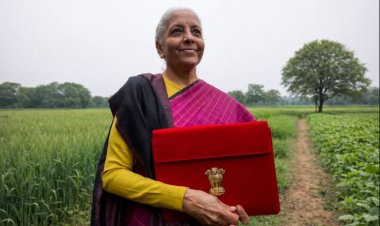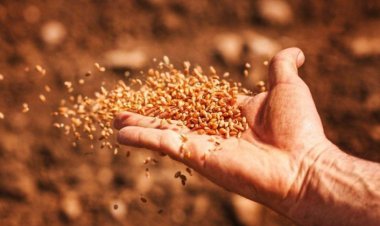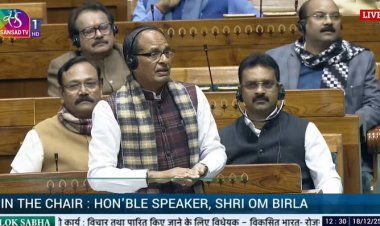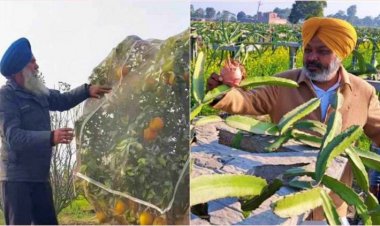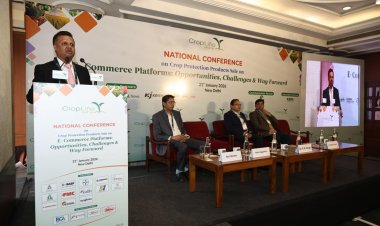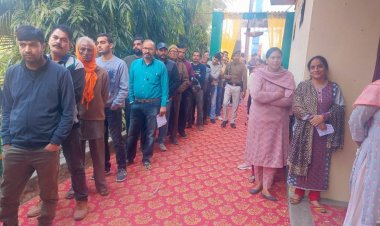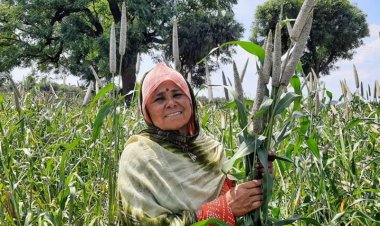BBSSL eyes ₹18,000 Crore turnover in 7 years, empowering farmers with quality seeds
Bhartiya Beej Sahkari Samiti Limited (BBSSL) has set an ambitious target of achieving a total turnover of ₹18,000 crore over the next seven years, aiming to increase the production of quality seeds, enhance farmers' incomes, and provide a boost to the rural economy.
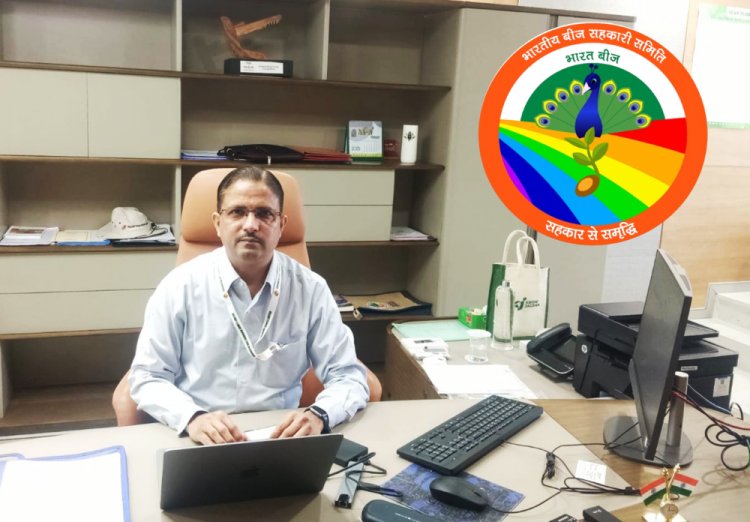
Three multi-state cooperative societies have been established at the national level to promote agricultural exports, organic products and the production of quality seeds. Among them, the Bhartiya Beej Sahkari Samiti Limited (BBSSL) has been established to produce, procure, and distribute quality seeds under a single brand through a network of cooperatives. This initiative aims to improve crop yield and develop a system for preserving and promoting indigenous seeds.
In an exclusive conversation with Rural Voice, Chetan Joshi, Managing Director of Bhartiya Beej Sahkari Samiti Limited, shared that the new cooperative is projected to achieve a turnover of approximately ₹50 crore in the financial year 2024-25, which is considered its zero year. The target turnover for the first full business year, 2025-26, has been set at ₹270 crore. Over the next seven years, BBSSL aims for a turnover of ₹18,000 crore by selling 19 lakh tonnes of seeds.
Strengthening the Cooperative Seed Sector
Chetan Joshi emphasized that BBSSL’s primary objective is to establish a cooperative-sector seed company that supplies high-quality seeds to farmers at affordable prices. BBSSL will help increase the production of quality seeds in India, thereby reducing dependence on imported seeds, enhancing agricultural production and boosting the rural economy.
Additionally, the initiative seeks to bridge the gap between the 53% of agricultural area that lacks access to processed and quality seeds and the 47% where superior seed varieties are already available. The organization plans to enhance seed production to global standards, which will increase agricultural productivity and strengthen the rural economy by boosting farmers' incomes.
BBSSL aligns with Prime Minister Narendra Modi’s vision of "Sahkar se Samriddhi" vision, aiming to improve farmers' incomes. Increasing domestic seed production under the "Bharat Beej" brand will also support the "Make in India" initiative, Joshi said.
Structure and Investment
KRIBHCO is the chief promoter of BBSSL, with five Class-I stakeholders: IFFCO, NAFED, NDDB, and NCDC. The initial paid-up capital of BBSSL is Rs. 250 Crore with contribution of Rs. 50 Crore each by the five promoters and the authorized share capital is Rs. 500 Crore.
Seed Replacement and Farners Participation
BBSSL will help in increasing the seed replacement rate, and varietal replacement rate by ensuring the role of farmers in the production of certified seeds. The focus will be on the production, testing, certification, procurement, processing, storage, branding, labelling, and packaging of two generations of seeds—foundation and certified—while breeder seeds will be sourced from Public Sector Research Organizations and International Research Institutes i.e., ICRISAT, IRRI, CIMMYT etc.
Seed production will be carried out through Primary Agricultural Credit Societies (PACS), which will leverage various government schemes and policies in a focused manner under the ‘Whole of the Government Approach.’
Expansion and Seed Licensing
Chetan Joshi said that BBSSL has obtained seed licenses in 11 states, and the approval process is underway in five more states. The organization operates at all levels of seed production, including breeder seed, foundation seed, and certified seed. In 2024-25, BBSSL has begun selling seeds of groundnut, wheat, oats, and berseem.
To involve farmers in seed production, BBSSL is registering member farmers through Primary Agricultural Cooperative Societies (PACS), ensuring they benefit from premium prices. Seed producers will receive 10% above the Minimum Support Price (MSP), with the final price determined based on rates in Seed Corporations and Mandis—whichever is higher will be paid to farmers. PACS will also receive an additional incentive of 1-3% for seed processing, grading, and packaging.
BBSSL has made seed traceability mandatory, ensuring complete transparency in seed production. This allows buyers to track which farmer has produced a particular seed and where reinforcing authenticity and quality control.
Membership and Dividend Policy
BBSSL has received 20,961 membership applications from cooperative societies nationwide, issuing 17,425 share certificates so far. Membership campaigns are running at the national, state, district, and PACS levels, with set minimum share purchase limits.
Additionally, nominal membership is available for those purchasing shares worth ₹1 lakh, though they will not have voting rights. However, they can engage in business as BBSSL distributors. Joshi also confirmed that BBSSL will distribute dividends of up to 20% of share capital to its members, ensuring farmers benefit from both better seed prices and profit-sharing.
Seed Production Targets
As of 2024-25, BBSSL sold/distributed 52,906 quintals of seeds of Cereals, Oilseeds and Forage Crops. The total value of the seed sold is around Rs 46.19 Cr through its newly developed network of 138 retailers/distributors. So far, BBSSL has produced 15,395 quintals of seeds (covering 9 crops and 23 varieties) on 577 hectares of farmland.
During the 2024-25 Rabi season, BBSSL aims to produce 6.34 lakh quintals of certified seeds for wheat, gram, mustard, and peas. In 2023-24, it produced 13,697 quintals of foundation seeds, benefiting 16,850 farmers. The number of beneficiary farmers has now grown to 20.96 lakh, with 1,790 cooperative societies involved. In 2025-26, this number is expected to rise to 21 lakh farmers, with seeds being distributed through 1,790 societies.
For the Kharif 2025 season, BBSSL will introduce 22 varieties of seeds for seven crops—paddy, gram, soybean, groundnut, sorghum, maize, and beans—with an estimated production of 1.6 lakh quintals of certified seeds. This initiative is expected to benefit 56.47 lakh farmers nationwide.



 Join the RuralVoice whatsapp group
Join the RuralVoice whatsapp group


















